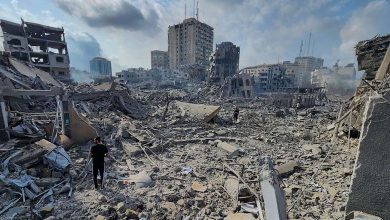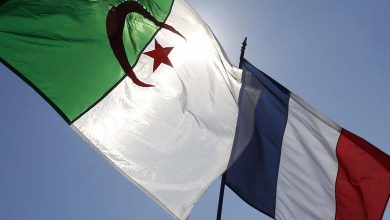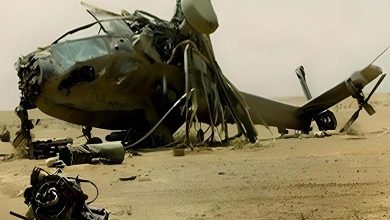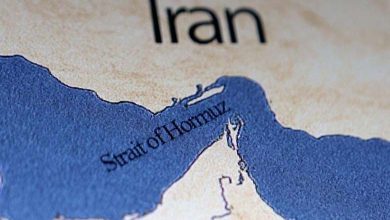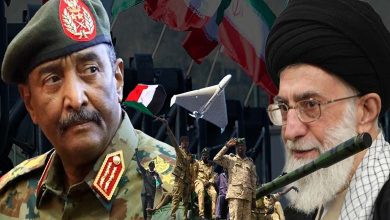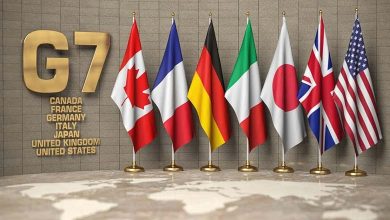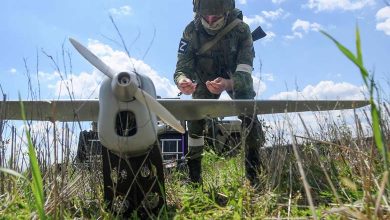Iran distances itself from the seizure operation by the Houthis
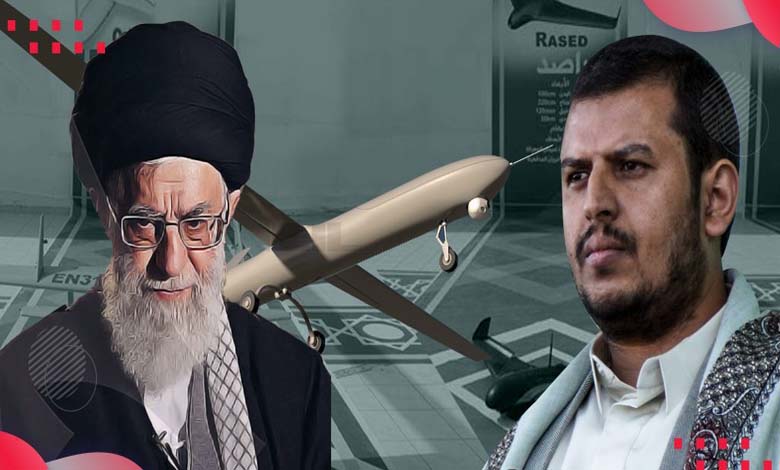
The Iranian government asserts that armed factions in the region are conducting operations independently, clarifying that its response will only end with an immediate cessation of killing operations and the lifting of the blockade on Gaza.
On Monday, Iran rejected Israeli accusations of involvement in the seizure operation by the Houthi rebels in Yemen of a cargo ship linked to an Israeli businessman, as Western criticisms of attacks linked to Gaza events escalate, raising concerns about further expansion.
The rebels announced on Sunday the seizure of the ship in the Red Sea days after threatening to target Israeli ships as part of their attacks against the Israeli state in response to the Gaza war.
Israeli Prime Minister Benjamin Netanyahu considered the seizure as an “Iranian attack on an international ship,” accusing the Houthis of carrying out the operation based on “Iranian instructions.”
Iranian Foreign Ministry spokesman Naser Kanaani rejected the Israeli accusations on Monday, stating, “These accusations are baseless and result from the complex circumstances facing the Zionist entity.”
He added during a press conference, “We have repeatedly announced that the resistance forces in the region represent their countries and peoples and decide based on the interests of their countries and peoples,” considering that “launching such allegations comes in the context of blaming others and results from the complex circumstances faced by the Zionists.”
He saw that the Israeli state, the regional enemy of the Islamic Republic, is unable “to accept its strategic, blatant, and multifaceted failure by the resistance in Palestine.”
Kanaani emphasized that the response of the resistance factions will only end with an immediate cessation of killing operations and the lifting of the blockade on Gaza, adding, “The comprehensive support of the U.S. government for the war crimes committed by the entity faces significant reactions in the region, especially with America’s opposition to any Security Council resolution calling for a ceasefire. This American opposition is among the measures that have made the situation in Gaza painful, prompting the resistance forces in the region to respond.”
He said that the resistance factions warned that they would not stand idly by if the war attacks did not end, adding, “They have given such a warning many times.”
“The wave of widespread opposition to the war in Gaza shows that the peoples of the world are also dissatisfied with what is happening and want to put an end to these crimes,” he added. “America must understand that only by an immediate cessation of killing operations, lifting the blockade, and allowing immediate aid to be sent will the response of the resistance factions end.”
He stressed that the armed factions are the ones making decisions and movements on their own, saying, “The resistance factions in the region do not take orders from Iran. They represent their peoples. Instead of accusing Iran, the U.S. government should investigate the reason for the hatred of the peoples towards it and why these peoples are chanting slogans against America and the Zionist entity in the streets for several days.”
He continued, “The resistance factions make their decisions and move. Unlike America, which orders and prevents its allies, Iran does not have proxy forces in the region. What happened is part of the reactions to the crimes of the Zionist entity.”
Iran affirmed its support for the idea of countries filing complaints with the International Criminal Court, saying, “We have raised this request several times after Israel committed war crimes and crimes against humanity.”
Since the outbreak of the war between Israel and Hamas over a month ago, the Houthis have launched a series of missile and drone attacks from Yemen towards southern Israel in solidarity with the Palestinians in Gaza.
And their leader, Abdul-Malik Badr al-Din al-Houthi, threatened Israel last week with targeting commercial ships in the Red Sea.
According to the “MarineTraffic” specialized website in monitoring maritime movements, the ship “Galaxy Leader” is a vehicle carrier built in 2002 and flies the flag of the Bahamas. It left Corfu in Turkey and was on its way to Pipavav in India when contact was lost with it on Saturday southwest of the Saudi city of Jeddah.
-
UN calls the legitimate Yemeni government and Iran-backed Houthis to execute the Stockholm Agreement
For its part, the Israeli army denied that the ship is Israeli, stating that its crew members are “civilians of different nationalities, and there are no Israelis among them.”
Specialized maritime transport websites reported that the ship is registered under the name of the British company Ray Car Carriers, and that the parent company of the group is listed under the name of Abraham Rami Ongar and is based in Israel. The ship is operated by the Japanese group “NYK Line.”
Iran and the Houthis have close relations. Arab and Western parties have previously accused Tehran of supplying rebels with weapons, including ballistic missiles and drones, which Tehran denies, emphasizing that its support for them is political in the face of the alliance led by Saudi Arabia.
Several countries in the region feel the repercussions of tension against the backdrop of the war in Gaza. Iraqi Foreign Minister Fuad Hussein said on Monday that the Iraqi government is working for a comprehensive ceasefire in Gaza, not just a truce, and is also working to continue providing aid to the people of Gaza.
In an opening speech at the fourth meeting of the Peace and Security Forum in the Middle East, hosted by the American University in Kurdistan in Duhok, he emphasized the risks of the operations of armed factions in Iraq against the forces of the international coalition.
Hussein said, “There are different scenarios in the current war. Our policy in the Iraqi government is to establish a Palestinian state and raise the issue in various forums. There are different trends in the Iraqi political scene related to the policy of different parties. Some trends call for linking the presence of the coalition and advisers in the Iraqi arena in the war with Gaza. Other trends see that this issue is Iraqi and leads to many problems in the Iraqi reality, including Kurdistan. Therefore, the Iraqi government is making every effort, whether with the Iraqi neighborhood or Islamic and European countries, for continuous communication with decision-makers, especially in Washington, to influence and pressure Israel to stop the war on Gaza.”
The minister spoke about the geopolitical developments related to the war, stating, “It is known that some countries want to limit the scope of the war. Israel seeks that, and Washington is heading in that direction. But there are policies in the region that seek the continuity of the war, not its expansion, meaning taking a permanent war, but without expansion. This matter will affect the Iraqi internal situation and the component relationships, so the effort and work to stop the war will continue.”
He emphasized that “the Iraqi government, especially Mr. al-Sadr, seeks to convince the factions that believe that there is a link between foreign presence in Iraq and the war on Gaza, that some operations are not in favor of stability in Iraq and not in favor of the security situation in Iraq, and there are great risks.”
Hussein said, “If these operations continue and there are victims, the question is, what will be the reaction of others, especially the coalition forces militarily and security-wise, and it will have political and economic consequences. We are all facing challenges.”
The armed factions loyal to Iran, including Iraqi militias, have intensified their targeting of US bases in Syria and Iraq, prompting a US response.


